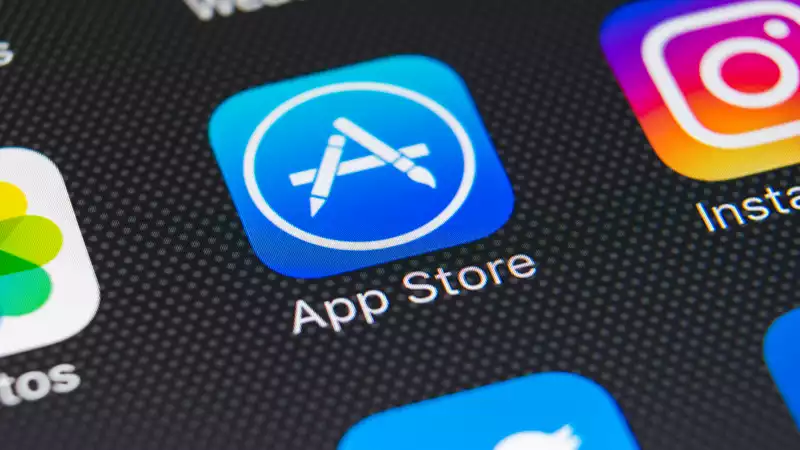Rumor has it that Apple intends to open up iOS to third-party app stores in the near future. This is something Apple has always strongly resisted for a variety of reasons, not least because it would cause Apple's "walled garden" to crumble.
But despite its concerns, Apple need not feel so threatened. In fact, opening its doors to third-party app stores could make things better for everyone: users, app makers, and even Apple.
Having a third-party app store in iOS is definitely good for consumer choice. Apple has routinely tightly controlled the App Store, tightly controlling what is and is not allowed. Sometimes this makes sense, especially with regard to harmful or outdated apps, and sometimes it does not. Like when Apple did not allow Game Pass apps that allow cloud streaming.
Access to third-party app stores means that such decisions have little impact on consumers. Indeed, Microsoft itself recently announced plans to launch its own Xbox Game Store for Android and iOS. Presumably, the iOS store will have a Game Pass app that will allow cloud streaming without the current web browser-centric workaround.
It is easy to recognize why Apple has always opposed the idea of opening up iOS to third-party app stores. In fact, whenever this debate arises, the main reason is brought out into the open. Apple argues that by controlling what is and is not available in the App Store, it can prevent people from being inundated with malicious apps and software that would compromise their security and privacy.
That's an admirable sentiment, even if Apple's process doesn't always stop malicious apps from infiltrating. For example, earlier this year, a large number of crypto-fraud apps appeared in the App Store, and this is not the only time this has happened. Still, not allowing users to install whatever they want from wherever they want is a very simple way to keep them safe.
Third-party app stores are outside of Apple's control, and their privacy and security measures are a complete mystery. Perhaps they are as good as or better than Apple's, but it is far more likely that they are not.
Of course, not being under Apple's control also means that third-party app stores bring no revenue to Apple. Apple notoriously charges a 30% fee on all App Store purchases (including subscriptions and in-iPhone app sales).
This is why services like Twitter Blue are more expensive on the iPhone and why services like Netflix do not allow subscriptions outside of a web browser. It's also why Fortnite was kicked out of the App Store after Epic Games found a way around Apple's restrictions, leading to a lengthy lawsuit.
While Apple certainly doesn't want to cede its iOS app infrastructure to third-party stores, potential rivals are likely not that big a threat to Apple. Android has supported third-party app stores since its inception, but so far it has not matched the popularity of Google Play.
These app stores are by no means small startups, but rather tech giants like Amazon and Huawei. Google Play, however, still reigns supreme.
According to Statista (opens in new tab), Google Play offers considerably more apps than its closest non-Apple rival, Amazon. Google's Play store has 3.5 million apps, while Amazon has 483,000,. Google's Play Store has 3.5 million apps, while Amazon has only 483,000 or so. While these numbers represent quantity, not quality, many of Google Play's apps are arguably garbage. And users want to use Google Play.
Accessing Google Play is the default option on virtually all Android phones, and it helps that it cannot be uninstalled. The store is the main component of the Google Play service (as the name suggests), a service that controls everything from user account authentication, security, location services, and even app updates.
Third-party app stores cannot be installed from Google Play; they must either be pre-installed, as on Amazon Fire tablets and Huawei devices, or physically installed themselves. In the latter case, you need to know not only that the store exists, but also where to go to download it; unless there is something special you can't get from Google Play, it doesn't seem worth the effort.
Third-party app stores also tend not to keep up with the latest information from Google Play, and it wasn't until the release of Android 12 that they were able to automatically update their apps. Android 14 will provide third-party app stores with Google Play equivalent, allowing users to check for update permissions and "claim ownership" of downloaded apps.
Being forced to allow third-party app stores does not mean that Apple will go down without a fight. The company does not intend to give users easy access to third-party app stores, and everything else pushes users to the officially certified iOS App Store, which seems to have existed forever.
Needless to say, third parties are at a disadvantage. Apple has 15 years of experience with the App Store and has always curated its catalog of apps ever since. New entrants are automatically at a disadvantage, having to start everything from scratch, which is likely to result in a very unattractive impression.
However, more choices are good for consumers, especially if the iPhone will have access to a high-quality app store as a result of this rumored change. Whether it is for third parties to offer apps and services that Apple refuses to provide or to make subscriptions cheaper, it means that iPhone users will no longer have to go to Apple if they don't want to.
Most of them will probably go to Apple's App Store anyway, as old habits are hard to break. But there is always the option of going elsewhere.
.









Comments